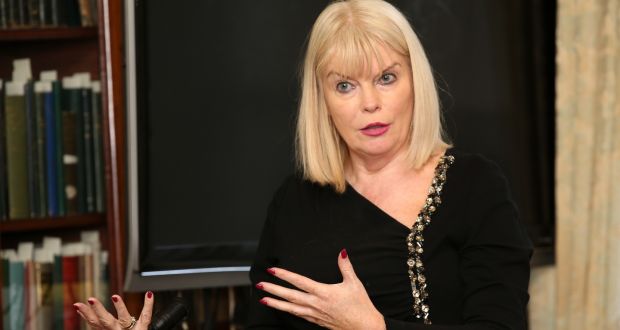Minister for Higher Education Mary Mitchell O’Connor said that “higher education in Ireland changed forever” last week as a result of new gender-specific academic positions, and said she is hopeful that a female university president will “possibly” be elected within her lifetime.
Writing in the Independent today, Mitchell O’Connor said: “The third-level sector in Ireland is underpinned by gender inequality, gender discrimination and instructional bias.”
She called opposition to the government’s gender equality initiative, which last week opened applications for a number of gender-specific posts in higher education institutes across the country, “rubbish”.
“These posts”, she said, “are about righting the explicit gender inequality that exists”.
Mitchell O’Connor said the paucity of women in senior academia has “represented the ultimate glass ceiling in higher education”, but said she hopes this is “all be about to change” as a result of the new initiative. She said she wants to be a “champion” for gender equality in higher education.
“Although our initiative may seem radical to some – I don’t think so”, she added, citing international evidence that “the establishment of new and additional gender-targeted posts would be a proportionate and effective means to achieve rapid and sustainable change”.
The Senior Academic Leadership Initiative is designed to improve gender equality at the highest rungs of third-level education by creating 45 posts at senior lecturer and professorship level.
The initiative was launched by the Higher Education Authority (HEA), after a 2018 report found that found that only 24 per cent of university professors were female despite 51 per cent of lecturers being female.
In institutes of technology, the report found, 45 per cent of lecturers are female, but only 36 per cent of senior lecturers are women.
The government has allocated €3 million to fund the new posts in 2020, a figure that will rise to nearly €5 million in 2021.
In May, Trinity signed the new Systemic Action for Gender Equality (SAGE) charter on behalf of Ireland’s universities. The charter, which was developed as part of an EU Horizon 2020 project led by Trinity, aims to eliminate the gender pay gap and improve female representation at senior levels.
Speaking at the launch of the charter, Provost Patrick Prendergast said that “it is a very important day for Trinity” and expressed his desire for Trinity to be “a leader in the field” of gender equality.
He noted that 40 per cent of College Board members and 50 per cent of University Council members are women, but said that Trinity has work to do in promoting gender equality. “Trinity performed less well in Athena Swan than we had hoped”, he said.
Prendergast said that the College must remain “vigilant” and that the “purpose of the charter is to encourage vigilance”.







